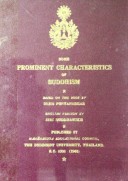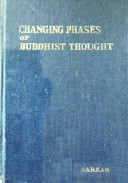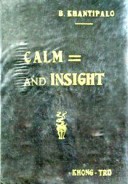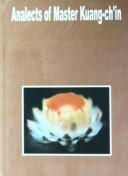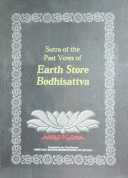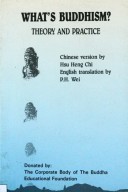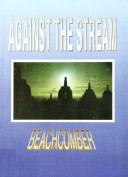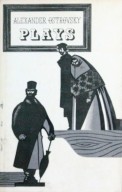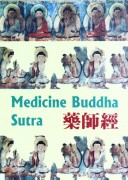Tìm Sách
Sách tiếng Anh-English >> Kamma
Thông tin tra cứu
- Tên sách : Kamma
- Tác giả : Bhikkhu Silacara
- Dịch giả :
- Ngôn ngữ : Anh
- Số trang : 52
- Nhà xuất bản : Maha Bodhi Society of India
- Năm xuất bản : 1950
- Phân loại : Sách tiếng Anh-English
- MCB : 1210000003536
- OPAC :
- Tóm tắt :
KAMMA
In its simplest form, expressed in the simplest words, the Buddhist doctrine of Kamma can be readily understood by the smallest child. For it says to that child: “Be good and you will be happy, now and in the future. But if you are bad, you will be unhappy, now and in the future. The world is made like that.” And if the child should ask, as children will, “Why is the world made like that?” the only correct answer on the part of the adult asked will be: “I do not know why it is made like that. I also do not know why water is wet, or why fire is hot. They just are so, as you will find out for yourself when you try them, and see. And the world also is made like that, as you will find out as you go on living and getting older, that is, when you try it and see.” However, the adult himself will wish to know a little more about what this law of the world,—of all worlds,— means, and how it works, than is expressed in this bald statement to the child in years and understanding. And when he makes enquiry into that law, as expounded by the Buddha, he finds that in the details of its nature and working, it has unexpected ramifications which require some attention and study fully to understand. And even then, with all the study that may be given to it, it can never as a whole be fully understood by the mind of ordinary men. Only a Buddha is possessed of the mental calibre sufficient to grasp to the full the whole sequence of causation which brings about a given state of affairs in the life of any being, at any given point of time. For anyone else to attempt to plumb all these depths of causation—it is the Buddha himself who gives the warning—would be to run grave risk of mental alienation, in plain English, of madness, at the very least, temporary, and it might even be, permanent. This, however, need not deter us from trying to understand to the best of our ability, all that can be understood by minds such as ours. So to this task let us now address ourselves.
And first we must note what a great misfortune it is, from our Buddhist point of view, that the earlier introducers of this word, Kamma, under its Sanskrit form Karma, into the vocabulary of the western world, were not Buddhists, and consequently stamped upon the word a meaning, in the average westerner’s mind, which is altogether different from the meaning it has for us who have learned the Buddha’s doctrine at its original sources. The greatest offenders in this regard have been the representatives of an alien faith who went out into Eastern countries to propagate that faith of theirs. For, in the course of their efforts to pick up the language of the lands to which they had been sent, in their talk with the dwellers in these lands, they frequently heard the expression, when such were talking of something that had happened to them (generally of an untoward nature): “O, it is my karma ; it is my karma,” and forthwith jumped to the conclusion that what their Oriental acquaintances were saying was: “Oh, this is my fate ; this is my destiny. This is something imposed on me by a power beyond my control, to which I must helplessly submit.” And they mentally noted down that among the other lamentable evils prevalent among those unfortunate. Orientals this also was one: that they were fatalists, people who believed that their fate in life was all fixed in advance beforehand, and that nothing now that they might do, could alter it…
 Facebook
Facebook
 Google
Google
 Google+
Google+

